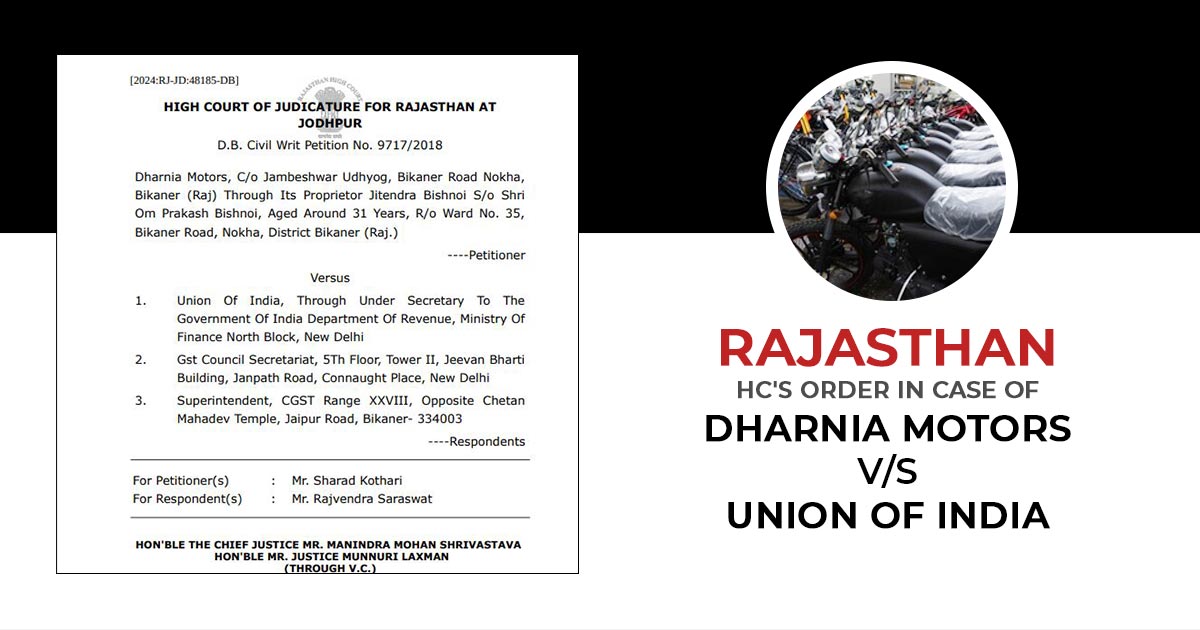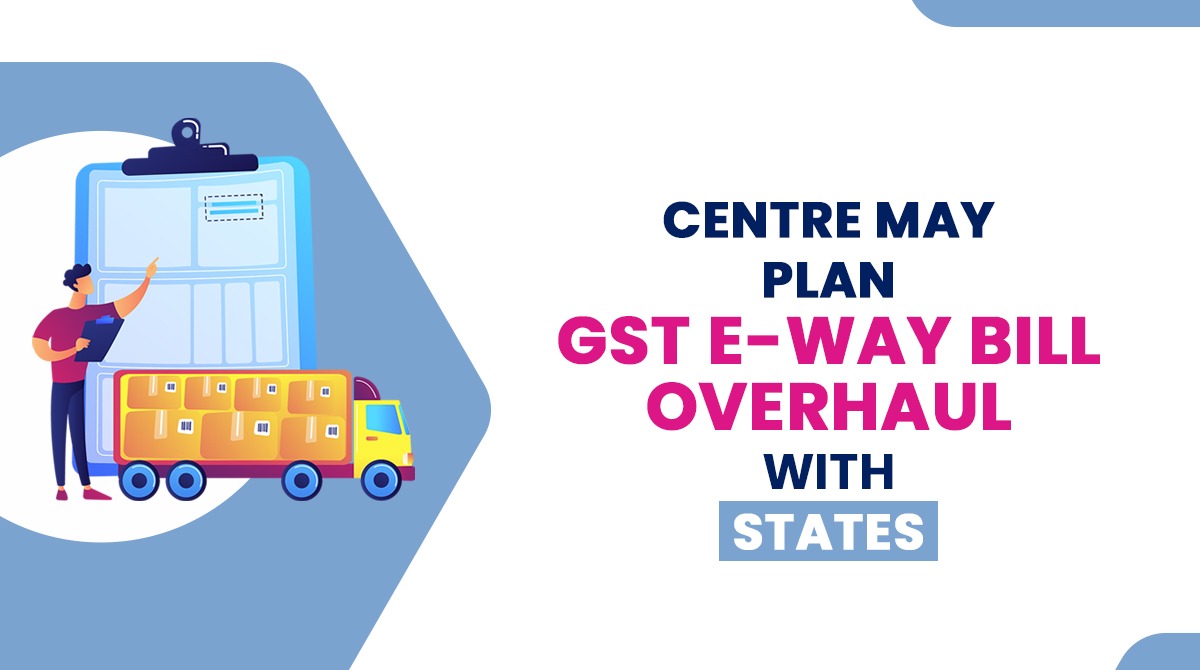
Rules specifying the ‘time and manner’ for claiming transitional credit, in addition to the statutory process furnished u/s 140 of the Central Goods and Services Tax Act 2017, are mandatory, the Rajasthan High Court said.
A division bench of Chief Justice Manindra Mohan Shrivastava and Justice Munnuri Laxman held that the prescriptions under section 117 of the CGST rules are obligatory in nature, and non-compliance shall result in the rejection of a trader/dealer’s claim of transitional credit.
It marked that “Substantive provision contained in sub-section (3) of Section 140 of the CGST Act, 2017, clearly mandates that entitlement to take credit of eligible duties would be available within such time and in such manner, as may be prescribed, subject to conditions as laid down,”
To bridge the transitional phase section 140 was made effective on the migration of traders/dealers to GST from VAT, Service Tax, or Central Excise. The same furnishes for the transitional credit advantage qua goods carried in stock merely before the set day for enforcing the CGST Act.
Every registered person as per Rule 117 of CGST rules, is qualified to take the credit of Input tax u/s 140 and will provide a declaration in GST TRAN -1 in the said duration of 90 days, additionally extendable by 90 days, if there is a failure without intent to provide the declaration in the cited duration.
In this, the applicant a trader who is dealing in automobiles, motorbikes, and other vehicles, asserted that rule 117 is not obligated in nature and therefore contested the refusal of transitional credit of excise duty for its failure to furnish the declaration under TRAN-1.
It was argued by the applicant that once it satisfies the legal eligibility conditions specified u/s 140 then the non-compliance with Rule 117 shall not defeat its indefeasible legal right to claim the transitional credit.
It was claimed that once the eligibility to claim the transitional credit under section 140 of the CGST Act, 2017 is incurred as per the eligibility criteria furnished as per the regulatory, then the enrolled dealer can provide his claim for the transitional credit at any time and not restricted by the limitation specified under the statutes.
The need to submit the TRAN-1 declaration is not a substantive or obligatory provision, however, just a processual or directory, a breach of which does not direct to the rejection of the claim.
Read Also: Kerala HC Rejects Petition Seeking Legal Remedy for Transitional Claim Credit Under GST Act
Petitioner quoted a notification on 30.06.2017 issued via the Finance Ministry which it asserted did not establish any other actionable on the part of the trader/dealer for availment of transitional credit, except to file TRAN-3.
The revenue has asserted that the right to claim the transitional credit as given u/s 140 is not absolute, however, it could be claimed that on the fulfilment of the conditions of the eligibility in the specified law and via providing the particular legal declaration as given in TRAN-1 appended to the CGST rules 2017 and that even in the said duration.
It mentioned a notification issued dated 15.09.2017m after the notification quoted by the applicant, directing the simultaneous filing of TRAN-1 and TRAN-3 where the trader/dealer aimed to claim credit. It claimed that the two notifications are to be read together; they are not different or disjoint.
The High Court noticed that the expression “within such time and in such manner as may be prescribed” is included in section 140 obligated the rule-making the authority to make the significant provisions in the same concern, which the central government performed via framing the CGST rules 2017, and in particular specifying the process for claiming the credit of qualified obligations as Input tax credit, under Rule 117.
It carried that, “The requirement of statutory declaration in the prescribed proforma TRAN-1 is not an empty formality or mere procedural aspect, as has been contended before us. It constitutes a statutory pre-condition because eligibility to claim transitional credit under sub-section (3) of Section 140 of the CGST Act, 2017, is based on certain conditions, which are statutorily prescribed. The law requires an appropriate solemn declaration to be made by the claimant by submitting electronically the details in TRAN-1 on the GST portal.”
It mentioned that ALD Automotive Pvt. Ltd. Vs. Commercial Tax Officer Now Upgraded as the Assistant Commissioner (CT) & Ors. (2018) in which the Supreme Court laid down that the facility of input tax credit is a concession, which can be taken merely as per the provisions of law and not beyond it.
Read Also: Easy Procedure to Revise Filed GST TRAN-1 & TRAN-2 Forms
The bench relied upon Jayam & Co. Vs. Assistant Commissioner & Anr. (2016), where it was laid down that when a concession is provided by law then the Legislature has the authority to make the provision remarking on the form and how such concession is to be permitted.
“The prescription of the time limit is not merely a provision of Rule framed by the Rule Making Authority in the exercise of rule-making power conferred on it under the CGST Act, 2017, but is also a statutory mandate, as contained in sub-section (3) of Section 140 of the CGST Act, 2017, that such claim has to be made within the prescribed time and in such manner, as may be prescribed. Therefore, the Rule Making Authority had no option but to prescribe the time limit for making appropriate declaration consistent with the eligibility conditions contained in the law itself,” the High Court cited.
As per the bench Rule 117 objective is to mandate the submission of the timely declaration, and is to assure that all the transitional credit avail are solved and stale claims might not be permitted to be made post an inordinate delay since in those matters it might not be easy to validate the accuracy of the claim.
As per that the petition was dismissed carrying that the submission of the legal declaration in TRAN-1 within the said time was obligated to claim the transitional credit.
| Case Title | Dharnia Motors vs. Union Of India |
| Citation | D.B. Civil Writ Petition No. 9717/2018 |
| Date | 29.11.2024 |
| Counsel for Petitioner | Mr Sharad Kothari |
| Counsel for Respondent | Mr Rajvendra Saraswat |
| Rajasthan High Court | Read Order |









